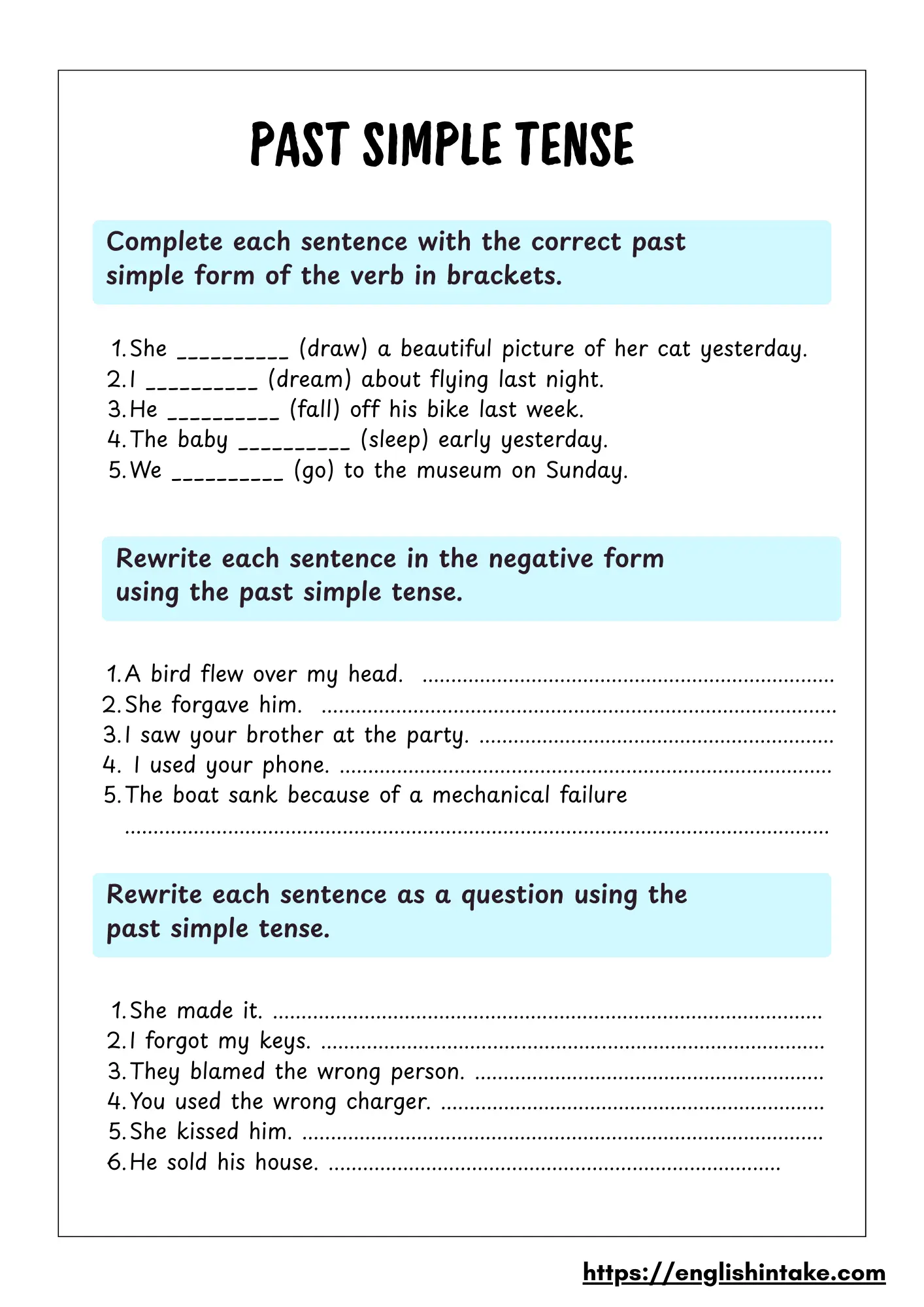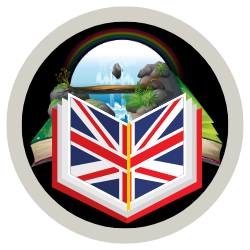Complete these past simple exercises and download a practice worksheet in pdf format to review verb tenses in the affirmative, negative, and question forms. Check your score by clicking the 'check answers' button.
Exercise 1: Past simple forms of regular and irregular verbs
Write the correct past simple form of the verbs in the table.
| know
knew |
watch
watched |
write
wrote |
call
called |
go
went |
close
closed |
| buy
bought |
dance
danced |
speak
spoke |
enjoy
enjoyed |
take
took |
cook
cooked |
| run
ran |
open
opened |
sleep
slept |
clean
cleaned |
drive
drove |
laugh
laughed |
Exercise 2: sentence completion
Complete each sentence using the past simple form of the verb in brackets.
1. She (watch) a movie last night.
She watched a movie last night.
2. They (visit) their grandparents yesterday.
They visited their grandparents yesterday.
3. I (lose) my keys this morning.
I lost my keys this morning.
4. We (play) football at the park.
We played football at the park.
5. A debate (arise) in Parliament over the proposed laws on immigration.
A debate arose in Parliament over the proposed laws on immigration.
6. The baby (cry) after being put to bed.
The baby cried after being put to bed.
7. Jack (bleed) badly after the accident.
Jack bled badly after the accident.
8. She (leave) early this morning.
She left early this morning.
9. We (eat) traditional Spanish dishes yesterday.
We ate traditional Spanish dishes yesterday.
10. I (find) a coin on the street.
I found a coin on the street.
Exercise 3: Negative past simple forms
Rewrite each sentence in the negative form using the past simple tense. Do not use the short form of the auxiliary verb.
1. He was the killer.
He was not the killer.
2. I beat him up.
I did not beat him up.
3. She screamed when she saw the thief.
She did not scream when she saw the thief.
4. He bled after the accident.
He did not bleed after the accident.
5. William slunk out of the room before the meeting was finished.
William did not slink out of the room before the meeting was finished.
Exercise 4: Question forms
Rewrite each sentence as a question using the past simple tense.
1. She broke her legs.
Did she break her legs?
2. He burned himself while cooking.
Did he burn himself while cooking?
3. He caught the bus.
Did he catch the bus?
4. They lived in Canada.
Did they live in Canada?
5. The cheese smelt bad.
Did the cheese smell bad?
Practice worksheet
Click the link below to download the past simple worksheet in PDF format for more exercises; the answers are provided on this page.

Affirmative forms
- She drew a beautiful picture of her cat yesterday.
- I dreamt about flying last night. (or dreamed)
- He fell off his bike last week.
- The baby slept early yesterday.
- We went to the museum on Sunday.
Negative forms
- A bird did not fly over my head.
- She did not forgive him.
- I did not see your brother at the party.
- I did not use your phone.
- The boat did not sink because of a mechanical failure.
Question forms
- Did she make it?
- Did I forget my keys?
- Did they blame the wrong person?
- Did you use the wrong charger?
- Did she kiss him?
- Did he sell his house?

